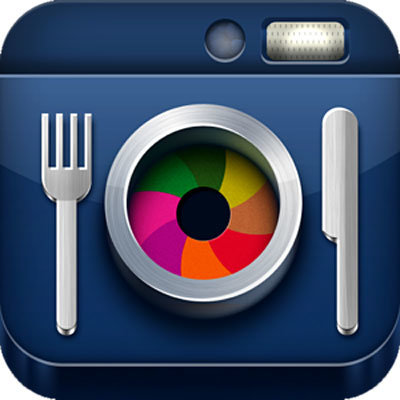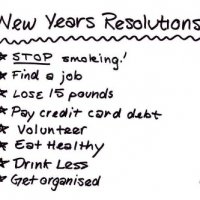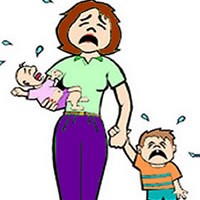The Special Problem Of Anxiety
The Special Problem of Anxiety:
 Anxious people probably see little benefit in their uncomfortable emotion. High anxiety interferes with perforÂmance, makes us feel inadequate, and renders us powerless and helpless. Little benefit can be derived from these experiences.
Â
Click Here To Visit The Official: Low Fat Diet Plan Website!  Â
Â
However, anxiety is a form of emotional energy. The person undergoing a strong experience of anxiety is simply in a state of high emotional arousal programmed for activity and has come to conceptualize his emotional arousal in negative terms. If he possessed more self-confidence or had an expectation of imminent success, he might experience the emotional arousal in more positive terms.
To give you an idea of the possible benefits of anxiety (i.e., emotional energy), consider the results of studies which show a positive relationship between anxiety and creativity. The creative person discharges his emotions inwardly in the form of intense fantasies and mental images. Rather than acting out his emotions, the creative person inhibits them, keeps them from being discharged physically and as a result, they erupt in the form of rich mental imagery that is so characteristic of creative persons. Their emotionality is channeled into mental activity rather than physical activity.
That this relationship between anxiety and creativity does exist is evident in several studies which demonstrate a correlation between high anxiety and performance on tests of originality fantasy and novelty. Psychologist Michael Wallach reviewed all of the studies that had been conducted on creativity. Based upon his review, Wallach concluded that highly anxious people are more creative than non-anxious people. They have, he observed, an "introspective sensitivity" that gives them a head start in originality, perceptiveness, and creativity.
These findings seem to argue that the highly emotional person including the very anxious individual is a veritable breeding ground for mental imagery, spontaneous fantasy, and vivid mental activity. It is no wonder that so many of the creative intellects of this and other generations have often been anxious, even "neurotic," individuals.
So close is this relationship between emotionality and creativity that I've concluded that little in the way of truly creative work can be done without at least a moderate amount of emotional arousal. An example of this observation is seen in the work of psychiatrist George Crane, who wrote the syndicated column, "The Worry Clinic," for over twenty years. Here is a description of how he went about writing six columns a week for over twenty years and how he relied on emotional energy to galvanize him into creative effort:
Clinic" articles for newspapers, here's the way I normally act.
Â
During breakfast, I am vaguely irritable, for I am worrying about the choice of psychology cases to describe in those six daily articles,
I stall some more by reading the morning paper and my mail. Then 1 pick some case histories from my files. But I still try to avoid the hard work of phrasing my sentences at the typewriter. For instance, I may decide that my typewriter ribbon needs changing, so I gleefully perform that manual chore.
Â
As long as 1 am doing something, even though it is manual and not requiring much thought, my conscience is vaguely appeased. Then I may oil the typewriter. By this time I imagine I am thirsty so I get a bottle of pop or a cup of coffee.
Â
To stall off the inevitable, 1 call my secretary downtown to find out what morning mail may be there at the office. Then 1 wander around looking at some of my articles or glancing through medical and psychological journals.
Meanwhile, my thoughts are vaguely "polarizing" around the six cases which I wish to describe in my week's batch of copy. Often I thus squander so much time that it is almost noon, so I decide I might as well eat lunch first.
Obviously I grow more preoccupied and grouchy every minute. For I am becoming irate at Mr. Sloth and indulging in self-recrimination about the fact that the clock now shows 1 p.m.
After lunch, with no further excuse for stalling, I reluctantly sit down at my typewriter. It is only when my emotional ire reaches the eruptive or volcanic state that I can actually percolate mentally.
There is a great danger that we will fail to properly channel and utilize this emotional energy. Sometimes we discharge it indiscriminately and other times we over inhibit it and then feel it turn inward to work against us. But if we know how to use emotional energy properly, it will serve us admirably in many different areas.
Â
Click Here: To Try Our Free BMI Calculator!
Â
One use of emotional energy, suggested by Crane in the above is a weapon against procrastination. Take writing, for example. A writer will desire to turn out much material and yet dread getting started. The problem is that the energizing force (the emotional drive) is no stronger than the inhibiting force (the fear of writing; laziness, etc.). Sometimes, in order to overcome the resulting standoff, it may be useful to put off writing for a while in order to let the emotion build up, as Dr. Crane did.
You might even remind yourself that you should be writing, in order to increase your anxiety level even higher. Then when you finally sit down to write, your anxiety (emotional energy) level will be so high that the words will almost erupt onto the paper.
Â
Â
-
Dont Give Up On Weight Loss
Many of you have given up on weight loss. Ive been there and it feels
-
How to Lose Fat - Workout and Get an Amazing Body That You Can Be Proud Of
There are many overweight people that are wondering how to lose fat th
-
Sugar Free Dos and Donts and More
In todays world, it seems that almost any topic is open for debate. Wh
-
Natural Weight Loss Programs
Every body around the world would like to give most important to two t
-
Fat Burning Furnace - Lose Body Fat without Self Punishment!
How to Lose 26 Pounds in 7 Weeks! Do you want to lose body fat without
-
Ab Exercise Equipment - An Honest Review
Are you currently in excellent condition regarding summer but? Peop
- DON'T MISS
- Weight Loss Success Stories And Pictures
- The 7 Phases of Change
- Exercising Is a Slippery Slope
- A Pursuit To Choose The Best Diet Pill
- Fat Loss 4 Idiots - I tried Fat Loss 4 Idiots!
- For Weight Loss Do Exercises
- Why People Tend To Proceed With The Liquid Diet Weight Loss Programs
- Fat Burning Furnace By Rob Poulos Torrent
- Best Diet Pills - Weight Loss Pills
- Exercising For Fun And Weight Loss-Here Are 8 Great Methods




